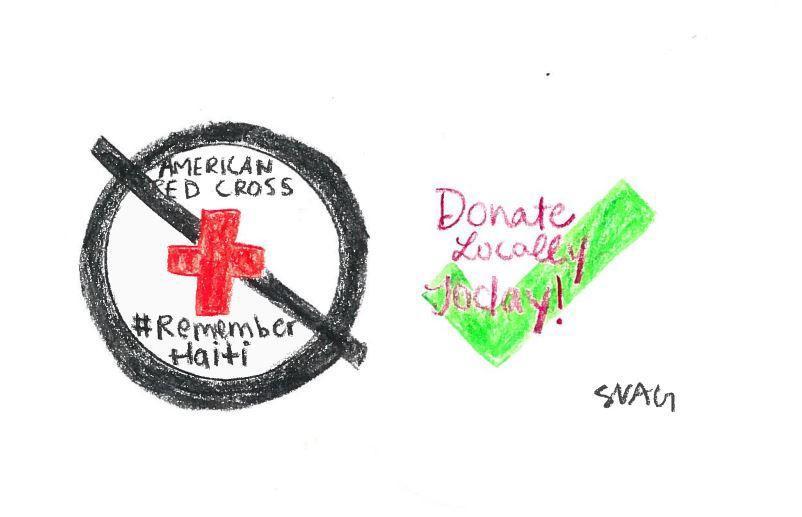Hurricanes have been making headlines over the past few weeks, with Hurricane Harvey hitting Texas and now Hurricane Irma hitting Florida. As all of these disasters make landfall in America and the Caribbean islands, Red Cross is bound to get a load of work. However, Red Cross is not reliable and should not be who people donate to for disaster recovery.
Red Cross began in 1881 and, according to its website, responds to nearly 64,000 disasters a year. Because of its widespread operation, many disaster victims get overlooked. According to NPR, when an earthquake hit Haiti in 2010, the Red Cross only built six houses in Haiti after raising 488 million dollars for relief. Red Cross denied the claims at the time, but former Haitian political leaders, like former Prime Minister Jean-Max Bellerive, claim they have no clue where the money went.
Haiti was not the first time the Red Cross dropped the ball. In two of the most significant disasters in modern American history — 9/11 and Hurricane Katrina —Red Cross failed to use its money to adequately help those affected. According to The New York Times, following the 9/11 terrorist attacks, Red Cross recorded a massive $1.1 billion to help New York recover. However, donors soon came to realize the money wasn’t all used toward relief, with $200 million used for future disasters. After Hurricane Katrina, Red Cross came under fire again for monopolizing the recovery.
Red Cross also showed its ineptitude during the Baton Rouge flood. According to The Advocate, Red Cross denied donations of medical equipment for evacuees and displaced people. Red Cross’ denial bewildered Louisiana Gov. John Bel Edwards so much that his spokesperson Richard Carbo came out on his behalf and said the state intended to reevaluate its partnership with Red Cross in the future.
As Texas begins to recover from the Harvey flooding, a Houston City Councilman Dave Martin called the Red Cross “the most inept, unorganized organization I’ve ever experienced.” Martin later went on and said to “not waste your money” and “give to another cause.”
There are many local charities you can donate to instead of the Red Cross. Give to charities within particularly affected areas. A simple Google search can show places to donate to in the areas most heavily affected, oftentimes poorer communities.
The added perk of giving locally is local charities know what local areas need. The volunteers are often from the area, know the area and serve the area. Local charities simply have an edge on the Red Cross because of familiarity.
Do yourself a favor and donate locally. No one wants to find out their money did not get utilized properly during disasters, and the best way to avoid this is by donating to charities in the areas of disasters.
Miles Jordan is a 19-year-old liberal arts sophomore from New Orleans, Louisiana.





